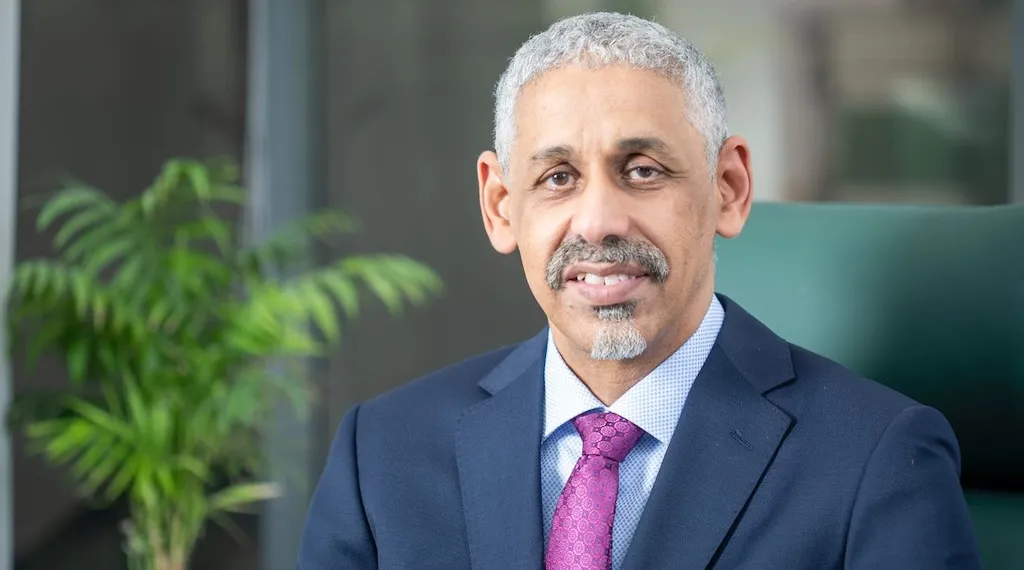Sidi Ould Tah of Mauritania has been elected the ninth President of the African Development Bank (AfDB) Group, succeeding Nigeria’s Dr. Akinwumi Adesina, who has led the Bank since 2015. The election took place during the Bank’s 2025 Annual Meetings in Abidjan, Côte d’Ivoire, a highly anticipated event drawing global attention to the future of African finance and development.
Tah emerged victorious after a competitive race involving five top-tier candidates. His election was confirmed by the AfDB’s Board of Governors, comprising Finance Ministers and Central Bank Governors from the Bank Group’s 81 regional and non-regional member countries who serve as the Bank’s highest decision-making authority. To secure the position, a candidate was required to obtain at least 50.01% of both regional and non-regional votes, a threshold Tah successfully crossed.
The announcement was made by Nialé Kaba, Minister of Planning and Development for Côte d’Ivoire and Chairperson of the Board of Governors. Moments after being declared the winner, Tah took the stage with a confident declaration: “Let’s go to work now, I’m ready!”
Tah brings with him over 35 years of experience in African and international finance. Most recently, he served as President of the Arab Bank for Economic Development in Africa (BADEA) for a decade, where he spearheaded a sweeping transformation that saw the Bank’s balance sheet quadruple, earned it a AAA rating, and elevated its reputation as one of the most trusted development finance institutions focusing on Africa.
Before leading BADEA, Tah served as Mauritania’s Minister of Economic Affairs and Finance, and has held senior roles across several multilateral institutions. His track record includes driving crisis response efforts, launching large-scale financial reforms, and pioneering innovative approaches to resource mobilization across the continent.
Read also:
- African Development Bank sets bold goal to electrify 300 Million Africans by 2030
- NCDMB to float bank to boost capacity of indigenous oil, gas companies
- Intra-African Trade a Necessity, not a choice – AFDB Presidential Candidate Samuel Maimbo
The other four candidates in the race were Amadou Hott (Senegal), Samuel Maimbo (Zambia), Mahamat Abbas Tolli (Chad), and Bajabulile Swazi Tshabalala (South Africa). The full list of nominees was finalized and approved by the Board of Governors Steering Committee by January 31, 2025, and officially released on February 21, 2025.
Tah’s five-year term will officially begin on September 1, 2025, as he steps into the role following the conclusion of Dr. Akinwumi Adesina’s successful two-term presidency, which began in 2015. Under Adesina’s leadership, the Bank recorded major strides in infrastructure, agriculture, and energy development across Africa.
Since its founding in 1964, the African Development Bank has been led by eight presidents before Tah:
Mamoun Beheiry (Sudan, 1964–1970), Abdelwahab Labidi (Tunisia, 1970–1976), Kwame Donkor Fordwor (Ghana, 1976–1980), Willa Mung’Omba (Zambia, 1980–1985), Babacar N’diaye (Senegal, 1985–1995), Omar Kabbaj (Morocco, 1995–2005), Donald Kaberuka (Rwanda, 2005–2015), and Akinwumi Adesina (Nigeria, 2015–2025).
Tah’s election comes at a defining moment for the Bank and the continent. Africa is at a critical crossroads, facing the dual challenge of unlocking its economic potential while confronting climate shocks, global economic headwinds, and geopolitical uncertainties. The urgency to fast-track development is clear, with the continent striving to meet the African Union’s Agenda 2063 and the United Nations’ Sustainable Development Goals (SDGs), both priorities reflected in the Bank’s “High 5s” strategy.
The 2025 AfDB Annual Meetings, held from May 26 to 30 under the theme “Making Africa’s Capital Work Better for Africa’s Development”, gathered key stakeholders to discuss innovative ways to finance development and deepen collaboration across the continent.
The African Development Bank Group is composed of three institutions: the African Development Bank, the African Development Fund, and the Nigeria Trust Fund. It currently has 54 regional (African) and 27 non-regional (non-African) member countries, making it one of the most inclusive and influential financial institutions shaping Africa’s future.
